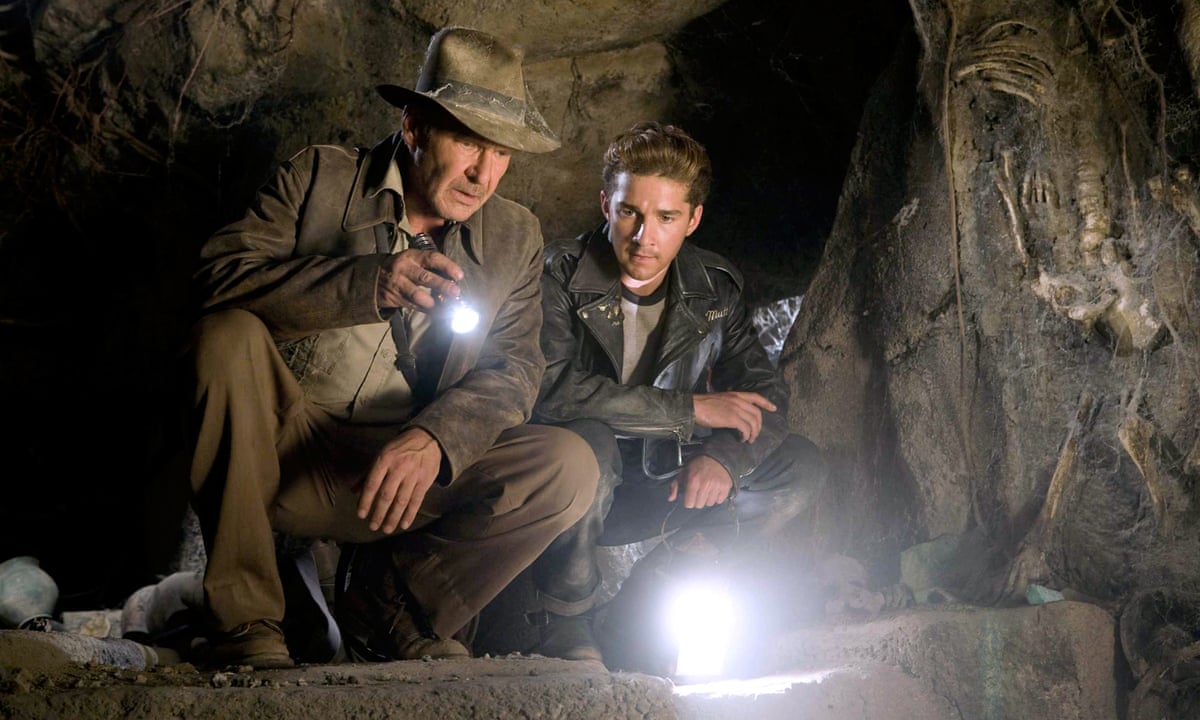When Sir Arthur Conan Doyle killed off Sherlock Holmes in The Final Problem, reactions from his readership were, to say the least, very vocal. He received backlash from longtime fans of the series, including from his own mother. Eventually, the backlash escalated to death threats. Frazzled by the reaction, the horrified author eventually wrote Adventure of the Empty House to resurrect the character and quell the backlash. Over 100 years later, this story would be repeated with the theatrical release of Justice League. This time the backlash, based on tampering of the film by the studio, would grow so intense that the studio itself would bend to the will of fans. Director Zack Snyder was granted a chance to release his own cut of the film to the public. As long as pop culture has been around, there have been fans, and as long as there have been fans, there have always been a toxic niche.
Stories like these and many others were swimming through my head as the latest Scream reached its final act. The killer in the latest film, an obsessed fan, reminded me a bit much of myself in a not-so-distant past, when I was caught up in the alluring fervor of fan angst. We’ve all experienced disappointment when something we love is continued in a way that doesn’t appeal to us. Disappointment is in many ways just as much a shared pop culture experience as excitement. Since we’ve all shared that experience, maybe it’s time we all take a deep breath and have a conversation that’s long overdue.

Let’s cool down.
Though it’s easy to criticize fans, the truth is that the media we absorb can play a big part in making us who we are. A book, comic, film, or game can not only influence taste and provide good memories, but they can also shape a person’s philosophy and worldviews and change the very nature of who someone is. When something falls short of being such an experience, unfulfillment, even anger, is a perfectly natural response. The more attached we are, the bigger the disappointment. To criticize is not the problem, nor is getting things like Adventure of the Empty House or the Snyder Cut to see the light of day. The real problem is the tone of such backlash. When does it go from simple criticism to malicious obsession?
The curious thing is bad sequels are nothing new. Major IPs have a long history of notable fumbles, many of which are far worse than what audiences today have seen. Films like Superman IV: The Quest for Peace, Star Trek V: The Final Frontier, or the notorious Star Wars: Holiday Special have become legendary in their ineptitude. Yet, the backlash against these films wasn’t nearly as intense or visible as the reactions to say Star Wars Episode I: The Phantom Menace, Indiana Jones & The Kingdom of the Crystal Skull, or Alien: Covenant.

One could argue that the internet is to blame. It didn’t create such anger, as the Holmes story proves, but it did allow it to proliferate. With the advent of various platforms, broadcasting one’s own voice for others to see has never been easier. Tools like this weren’t available in the times of Superman IV or Star Trek V. Without a pulpit, negative reactions to those films fizzled out quickly, seen more in the form of box office returns than vocal disappointment. Compare this to when The Last Jedi was released, and the disappointment became a phenomenon. When that phenomenon gets out of control, it has the power to ruin lives.
Actors, directors, and writers have all faced the ire of fans, often taking a crippling effect on their personal lives. Take Jake Lloyd for instance. Lloyd was by all accounts a perfectly happy kid, until he played a young Anakin Skywalker. Backlash to Phantom Menace bled into Lloyd’s personal life, leading to him being bullied and ostracized at school. It’s a story that has played out numerous times. Leslie Jones in the 2016 Ghostbusters, Kelly Marie Tran in The Last Jedi, and most recently, Eden Perkins who portrayed the famous Radical Edward in the live-action Cowboy Bebop. Even Gene Siskel, one of America’s most beloved film critics, attempted to dox Betsy Palmer following her appearance in Friday the 13th.
When you’re a fan, sometimes it can be easy to forget that the people working on something are just that; people. It can be easy to conflate a story or character you don’t like with someone simply trying to do their job. Whether these performances or stories were good or bad is not the point. The point is real people can be, and have been hurt. Leslie Jones was subject to bigoted harassment on Twitter, Kelly Marie Tran was chased right off the platform, and Jake Lloyd? The scars he carried were so deep that they led to a lifetime of substance abuse and run-ins with the law. When asked where his life went wrong, he always gives the same answer. It began with Star Wars.

Such overblown reactions to films and other forms of creative media have had a detrimental effect on how criticism is received by creators. In some cases, there are results, like the release of a new cut of a film, or a studio redesigning a character as was done for Sonic the Hedgehog. Other times, the reactions have been one of annoyed dismissal. Most will agree that The Predator isn’t a terribly good film, but following the panning it received, writer Fred Dekker dismissed the reactions as angsty fans who just didn’t get what he and Shane Black were trying to do. Is he right, or did the tone of such criticism simply make it easier for Dekker and other filmmakers to hand wave it away? Would a more level-headed criticism have made a difference?
Even if it doesn’t, the biggest beneficiary of more levelheaded criticism is you. I learned that the last time I was disappointed by a favorite series. For me, it was Alien. I stumbled into the science fiction/horror series a little over twenty years ago. For a lonely 11-year-old, it was love at first sight. While my classmates talked Star Wars or Pokemon, Alien was something uniquely mine. There were many things I loved about Alien, mostly just how, well, alien it was. The earlier films were masterworks of unanswered questions. Who was the Space Jockey? What was the titular Alien? Was it a bioweapon or a naturally occurring beast? It wasn’t the answers, but the questions themselves that excited me. For me, the pondering made the series that much more mysterious and scary. Then along came the prequels, and I didn’t like the answers.

The Space Jockey was just a big man, the Aliens were created by an android seeking revenge on mankind, and AI, rather than my favorite monster, was taking over the series. To say I didn’t react well would be an understatement. (Full disclosure: I was an idiot) Further stoking my anger was what, to me, seemed like a double standard amongst fans. Those who lambasted Aliens for adding the Queen and making the creature a ‘space bug‘ as they put it, changed their tune when an android created the Alien from wasps. After years of not getting over the second film, they were the first to tell me to suck it up. I’d argue it was this rather than the films that angered me more, but I completely lost it. For years I was vocal on forums, articles and whatever platform I could find to tell everyone how bloated the prequels were.
Slight problem. I hadn’t actually seen Alien: Covenant.
Upon hearing the Alien’s origin, I chose not to. Why spoil something I loved? After a few years, a friend of mine, himself not a prequel fan, suggested I give it a chance. We streamed it, and while I didn’t enjoy it, the memories I had were intact, the world didn’t end, and the only thing I felt was an urge to play Alien: Isolation. I’ve since softened my stance and tried to better understand those who are prequel fans, accepting that Alien isn’t to everyone what it is to me. Besides, I already made my point by not seeing it in theaters. Shouldn’t I have just said I wasn’t interested with the current films and left it at that?

Letting go of that anger gave me some valuable perspective. I can now look at Indiana Jones and the Kingdom of the Crystal Skull and be reasonably entertained, or appreciate the ambition and themes of the Alien prequels even if I don’t enjoy the films themselves. Just like there are healthy ways to enjoy something, there are also healthy ways not to, and so long as we dislike something in a healthy way, we should all be respected for our opinions. Those that don’t offer that courtesy? Well, that’s a brand of toxic fandom for another day.
Art is meant to enrich our lives. Alien did, and continues to enrich mine, and no amount of disappointing sequels can ever change that. I forgot that, and in my anger, I actually forgot how good a feeling it was to just sit back and enjoy something. At the end of the latest Scream, the killer dismisses the term ‘toxic fans.’ ‘How can something be toxic if it’s based on love?’ they ask. There is a difference between love and obsession. I’d like to ask everyone else who is in the same spot where I was a few years ago.
Why put all that energy into something you hate when it could be much better spent on something you love?
Like this article? Check out these other similar pieces by some of our top contributors!

One thought on “Facing Our Toxic Fandom – ScreenHub Entertainment”